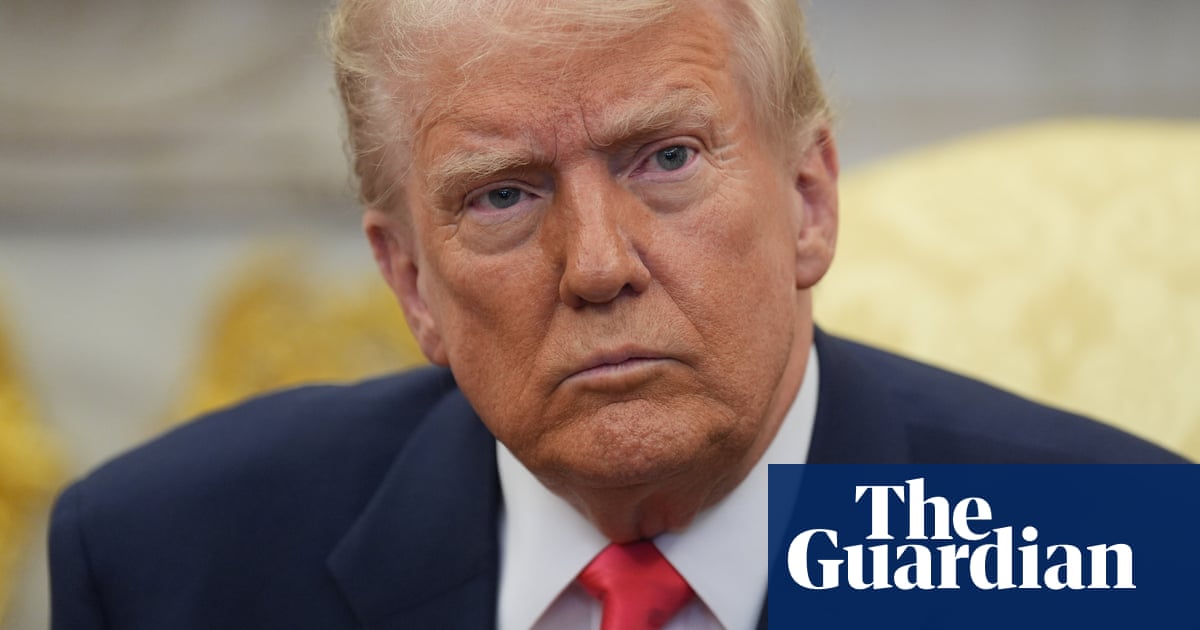British officials are forging ahead in their trade talks with the US despite a recent court decision overturning many of Donald Trump’s tariffs, and hope to have a deals covering cars, metals and aeroplane parts in place within weeks.
A team of British negotiators spent much of last week in Washington talking to their American counterparts about how to implement the deal was signed earlier this month, including how quickly it can be passed by parliament and Congress.
The talks come despitea ruling last weekby a federal court overturning Trump’s blanket 10% tariffs, which Downing Street believes will eventually be overruled by the president’s allies on the supreme court.
But on Thursday night, an appeals court paused the ruling while it looks more closely at the arguments – allowing Trump’s administration to keep them in place.
One government source said: “Some countries are viewing the court ruling as an indication that they were right not to negotiate over tariffs. We’re taking the opposite view, and trying to get this deal implemented as soon as possible.”
A government spokesperson said: “The UK was the first country to secure a deal with the US in a move that will protect British business and jobs across key sectors, from autos to steel.
“We are working to ensure that businesses can benefit from the deal as quickly as possible and will confirm next steps in due course.”
The US presidentannounced the US-UK trade dealearlier this month from the Oval Office, calling it “very special for the UK and special for the United States”. Trump surprised Downing Street with the timing of his announcement, informing Keir Starmer just hours before he made it, with many of the finer details still to be ironed out.
Under theterms of the agreement, for example, British car companies will be allowed to export 100,000 vehicles a year at a 10% tariff rate. But the deal does not set out how the Americans will view cars assembled in the UK with a considerable proportion of parts made in other countries, nor how parts themselves will be treated.
While the details are being fleshed out, some British companies are being forced by their American customers to reduce their prices, while others say they are simply not exporting at all.
Earlier this week, a federal court ruled many of Trump’s tariffs were illegal, and that he should first have sought the approval of Congress. But while that ruling applied to the 10% rate Trump has applied to products from across the world, it did not apply to the higher 25% rate he has imposed on cars, steel and aluminium.
Downing Street has decided to continue negotiating with the US as if the court ruling did not apply, not least because British officials believe it is likely to be struck out by the supreme court, which is dominated by conservatives.
Sign up toFirst Edition
Our morning email breaks down the key stories of the day, telling you what’s happening and why it matters
after newsletter promotion
On Friday night, Trump unexpectedly announced he would bedoubling foreign tariffs on steel and aluminium imports to 50%. It was not immediately clear how the announcement would affect the trade agreement negotiated earlier this month that saw tariffs on UK steel and aluminium reduced to zero.
Last week, a UK team landed in Washington, including the prime minister’s business adviser, Varun Chandra, the business department’s head of trade relations, Kate Joseph, and the deputy national security adviser, Jonathan Black. Michael Ellam, the senior Cabinet Office official who played a major role in getting the deal signed, is now concentrating on the EU reset deal, one source said.
The team spent much of last week talking to Howard Lutnick, the US commerce secretary, Jamieson Greer, the US trade representative, and Brooke Rollins, the US agriculture secretary. Rollinshas been pushingfor the UK to open up to more US agricultural and food products, though Starmer has insisted he is not willing to reduce welfare and safety standards to do so.
Officials are hoping car tariffs will be dropped in the next two weeks, while steel and aluminium ones could take a few weeks longer. They also believe the US will reduce tariffs on British-made aeroplane parts almost to zero, having promised to give the UK a “significantly preferential outcome” when deciding tariffs on future products.
Discussions about pharmaceutical products, which account for approximately £7bn worth of exports to the US, are still going on, however, given Trump has not yet said what tariffs he intends to impose on the sector.
The talks with the US are continuing at the same time as officials get closer to a controversial £1.6bn trade deal with Gulf countries. The Guardian revealed on Friday that that deal contained no concrete provisions on human rights, modern slavery or the environment.
